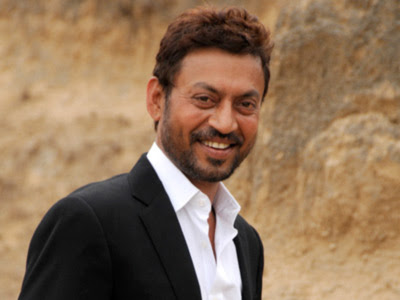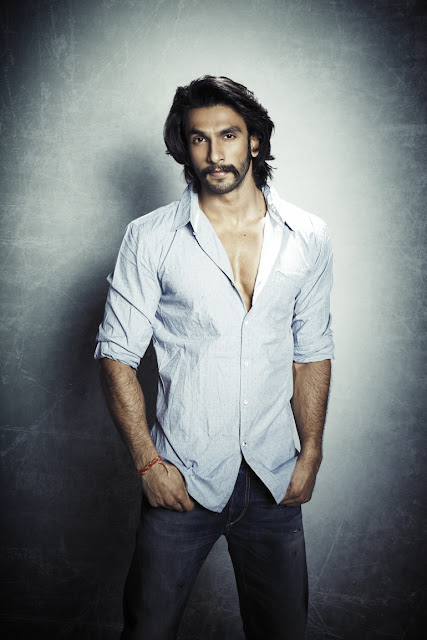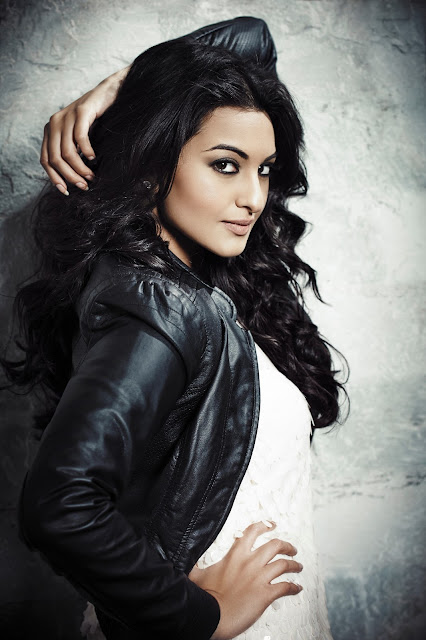“I feel I’m in the best position today
because I’m spoilt for choice”
By Ankita R Kanabar
(This interview has been published in the July 20,2013 issue of Super Cinema)
An animated film like ‘Delhi Safari’,
followed by a thriller like ‘D-Day’! When I asked Nikhil Advani if this was a
conscious decision to put his versatility to display, he laughs. I met him a
few days prior to the film’s release, and he continued to discuss the creative
aspects of the film with his team, and how they could still make the film
better. I realised how consumed he is by cinema. Probably, that’s on his mind
24/7; when I tell him that, he laughs and says that his wife obviously isn’t
very happy about it. So, here’s the filmmaker who’s also very funny in his own
way. Post a classic like ‘Kal Ho Na Ho’, he did face a lot of criticism for
‘Chandni Chowk To China’ and ‘Salaam-e-Ishq’, but that never really bogged down
the director. He continued to make films he wanted to, and has always been
positive. With ‘D-Day’, he aimed at doing something different, yet again. In a
freewheeling conversation, Nikhil Advani talks about this film, Hindi cinema in
general, reveals that he hates criticism and a more...
‘Delhi Safari’ and ‘D-Day’…is that a
conscious decision to keep exploring different genres?
I don’t
think it’s a conscious decision, but I think it’s the time when I don’t want to
make films that have only song and dance. Even if I’m making a romantic film,
which I’m doing soon, the script that has made me jump on it, is a very
different one. I guess it’s more subconscious, because all my peers are trying
very different things, and that has probably given me the courage to also do
different things, whether it’s Sujoy or Tigmanshu or Anurag Kashyap or Karan
for that matter, look what he did in ‘Bombay Talkies’. I feel the time is now
very correct and right. I don’t think we’re experimenting though. I want to
first expel this notion that we’re experimenting in Hindi cinema now, we’re
just telling interesting stories and every time we’ve told something interesting
and made it entertaining, people have come and watched it, whether it is
‘Sholay’, or any other film. ‘Sholay’ didn’t do well initially, and then it
went on to do so well. I think what was considered to be niche, that niche has
become so much bigger now.
‘D-Day’ has been getting some great
response from the industry insiders ever since the promo was unveiled…
I have
this wonderful voice of Mr Rishi Kapoor calling me every day and telling me
that, ‘Ten more people called me, and people have expectations from the film.
Now the only thing left for you, is to fail.’ I remember when I went to narrate
him the script of ‘Patiala House’, he was like ‘you narrate so well, when I saw
the trailer of ‘Chandni Chowk to China’, I thought the film would be so nice, I
told everyone the film would be nice, and then you made me look like a fool.
Don’t do that again.’ So, it’s a big task to match up to that expectation! That’s
why even between interviews we’re sitting and discussing things. It’s daunting.
There have been tough days, great days, bad days, good days on this film, just
like any other film, but what’s special about ‘D-Day’ is that at the end of the
day, every Indian will be proud to see it. If you’re an Indian, and at some
point, you’ve empathised, sympathised, or experienced any kind of injustice,
then you’ll really like the film.
You seem to be creatively active and
talking about films, almost 24/7!
Obviously,
my wife isn’t very happy about it (Laughs). But on a serious note, yes I think
it’s all very consuming. Especially, if you’re producing and directing a film at
the same time, and especially, if you’re trying to produce films for other
directors. But that’s also something which is a huge rush, and it’s also
something which at the end of the day, I think, is the reason why I decided to
part ways with Dharma and start my own production company.
When you’re a director and a producer,
don’t you have a little battle in your head all the time, while you juggle
between these two roles?
You need
to choose your battles wisely, as they say. You have to decide in your head, do
I really need this or no. Should I really fight for this or no? The director is
always fighting with the producer, the left brain is always fighting with the
right brain. The reason why I produce is that rather than explaining it to
someone else, I’ll explain better to my own self. As a producer my aim is that
we don’t go over-budget. Especially, in a film like ‘D-Day’, the scare is the
budget, so you don’t go over-budget, you stick to your schedule, and you don’t
create too many changes in the schedule. As a director, my aim is that whatever
I’m supposed to achieve on paper, I achieve beyond that.
You’ve cast such a unique bunch of
actors for ‘D-Day’. So how is your casting process like, generally?
I wanted
to take actors for ‘D-Day’ who wouldn’t turn around and tell me that I won’t do
this because my image doesn’t allow me. I wanted actors who would read the
script and understand the script for what it was saying, understand the
characters, and the way I wanted to make this film. So, every actor in this
film, whether new, or an experienced star, has completely given himself to the
film and has actually taken the script ten times ahead.
There may be times when you think
you’re taking a risk with a film, and then when it pays off, how does it feel?
For instance, ‘Delhi Safari’ winning a national award…
One feels
happy, of course! Every film has a philosophy that what is it that you’re
trying to achieve with that film. Are you trying to reach the 100 crore mark,
or you want 100 crore Indians to say what a lovely film it was? With ‘Delhi
Safari’, I wanted to put across that if animals could talk what would they say,
and could I say it interestingly enough. National award was just an icing on
the cake. Rewards for ‘Delhi Safari’ came in just when people gave it a
standing ovation in the theatres. For ‘D-Day’ our reward would be when people
understand what we’re trying to say and understand that it’s a bold film and
somewhere they appreciate that, everything else is a bonus.
A director’s job involves so many
things. What is it that you like the most?
I like the
fact that I can meet people who are equally consumed by cinema, and then we can
just chat. You observe people, and those are the things that stay in your head.
But, the confidence to say ‘okay’ is the most challenging part, because
basically then, you’re just saying you’ve got what you wanted. I firmly believe
that there’s nothing more vivid than imagination. I can take it to a point and
leave it, and I can take it to a point and show you everything. So, I think the
ability to say that, ‘Okay, I’ve got everything that I wanted from a particular
shot’ is the most challenging bit. The interesting thing with ‘D-Day’ is that I
never did that. Being an AD for so long, you’re so much in the process of being
prepared and doing your homework, but for this film, on the second day itself I
realised that this is not the way to go about it. I shouldn’t go on the set
with any pre-conceived notions. I would tell the cameramen, actors, and
everyone what the scene was, and they did what they were supposed to, and we
got our moments.
From ‘Kal Ho Na Ho’, to
‘D-Day’, how has it been?
‘D-Day’, how has it been?
I’ve
maintained that I’m a divine child. I’ve been at the right place at the right
time even when I took certain decisions, that not just to the rest of the
world, but to me also felt like what the hell have I done? I’ve managed to sail
through always. And whether it’s because of God or some supernatural being, I
feel I’m in the best position today because I’m spoilt for choice. I can be a
producer, a director, just a writer, or whatever, so I’m just spoilt for choice
and I’m enjoying myself.
You’ve also faced criticism at few
instances. Does criticism really bother you?
I hate
criticism, but you have no choice but to deal with it. I have a very strong
wife who told me something after ‘Salam-e-Ishq’ didn’t do as good as I thought
it would or others thought it would. She told me, you got two and a half stars
which is 50%, she said ‘50% of the world hates Martin Scorsese, you’re not
Martin Scorsese, 50% of the world hates Jesus Christ, you’re not Jesus Christ,
so do better next time.’ There will be lots of people who watch ‘D-Day’, and who
will say that this is untrue and rubbish, but those would be the same people
who loved ‘Kal Ho Na Ho’, so that’s what the fact is, I can’t please everyone.








